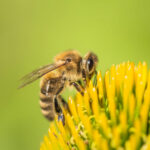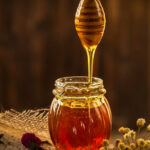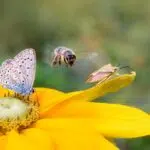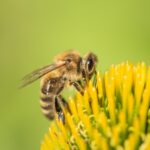National Pollinator Week is an annual event celebrated all over the world in the last full week in June, from June 22 to June 28 this year. The event was started in support of pollinator health. Pollinators are insects and small animals like birds, butterflies, and bees that pollinate plants and make our gardens and world greener. During this week, nature lovers and conscious citizens come together to celebrate pollinators and raise awareness about different ways in which they can be protected. In recent years, social media has been a great way to disperse information about National Pollinator Week and draw in many volunteers internationally.
History of National Pollinator Week
National Pollinator Week was started and is managed by the Pollinator Partnership. The first National Pollinator Week was observed in 2017 in America after the Senate’s unanimous approval that acknowledged the week as a necessary step in taking cognizance of the urgent issue of declining pollinator populations. Unfortunately, around 40% of invertebrate pollinator species, especially bees and butterflies, face the danger of going extinct. Rising temperatures, scarcity of habitats, and increased human activities threaten the existence of these friendly animals. Today, the week is observed as an international celebration to protect the ecosystems that sustain pollinators like bees, birds, butterflies, bats, and beetles.
Pollinator Partnership conducts different programs for children, teens, and adults every year. These programs aim to get people across the planet to pledge their support to the cause and continue promoting pollinator health and well-being. The organization conducts a number of gatherings, webinars, planting sessions, garden and farm walks, and lighting of monuments throughout the week-long celebration.
National Pollinator Week timeline
Rudolf Jakob Camerarius discovers genders in plants.
Joseph Gottlieb Kölreuter does the first systematic study of plant hybrids.
Charles Darwin publishes “The Various Contrivances By Which Orchids Are Fertilized by Insects.”
Johann Gregor Mandell lays the foundation of genetics by studying cross-pollination.
National Pollinator Week FAQs
What are the best plants for pollinators?
Borage, butterfly bush, and coneflowers are some of the best plants for pollinators.
How do I attract a pollinator to my garden?
It’s best to choose native plants to attract local pollinators to your garden.
What is the biggest pollinator?
The black-and-white ruffed lemur is the largest pollinator in the world.
How to Observe National Pollinator Week
Foundation of Genetics
Let the birds know that they are welcome to pollinate in your garden by building a birdhouse for them. Keep it well stocked with seeds and water.
Plant for pollinators
Pollinators like bees and butterflies are attracted to specific types of flowers and fruit. Find out what they are and plant them in your garden to welcome more visits by the pollinators.
Participate in a nature walk
You can participate in or host a nature walk to have a close look at how pollinators make our surroundings more colorful. This is also a fun way to celebrate National Pollinator Week with children.
5 Facts About Bees That Will Blow Your Mind
Bees have more than two eyes
In fact, bees actually have five eyes.
The queen bee lives long
A queen bee has an average lifespan of five years.
Honey is special
Honey is the only source of the antioxidant pinocembrin.
Bees have been around forever
Bees have existed for around 30 million years.
Not all bees sting
Only female bees have stingers.
Why National Pollinator Week is Important
It celebrates nature
National Pollinator Week is all about celebrating the greenery around us and the animals that make gardening easy. It encourages us to be grateful for the gifts of nature.
It takes charge of the future
Since National Pollinator Week raises awareness of the dwindling population of invertebrate pollinators, the week also makes us hopeful for a future where these creatures will no longer be endangered.
It makes us kind
The week makes us realize how even the smallest animal can make a huge impact in keeping our world happy and healthy. It’s a week to be kind towards animals that make our lives easier.
National Pollinator Week dates
| Year | Date | Day |
|---|---|---|
| 2024 | June 24–30 | Monday–Sunday |
| 2025 | June 23–29 | Monday–Sunday |
| 2026 | June 22–28 | Monday–Sunday |

















